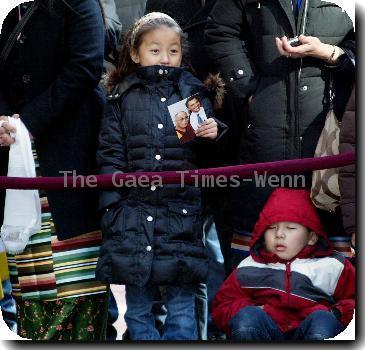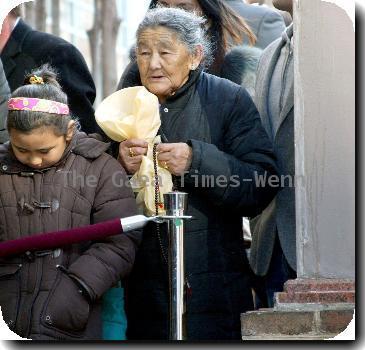25 people killed in Mexican border city, 85 escape from border prison
By Olivia Torres, APFriday, September 10, 2010
25 slain in Mexican city; 85 escape border prison
CIUDAD JUAREZ, Mexico — Gunmen killed 25 people in a series of drug-gang attacks in Ciudad Juarez, marking the deadliest day in more than two years for the Mexican border city. Farther east on the border, 85 inmates scaled the walls of a prison and escaped Friday in Mexico’s biggest jail break in recent memory.
Despite the violence, President Felipe Calderon hotly disputed a statement this week by U.S. Secretary of State Hillary Clinton saying Mexico resembled Colombia two decades ago.
“These kind of comments like the ones made by Secretary of State Clinton … so careless, so lacking in seriousness, are very painful for Mexico, because they damage Mexico’s image terribly,” Calderon told the Spanish-language network Univision.
“I think the main thing we have in common with Colombia is that both of our countries suffer from U.S. drug consumption,” Calderon said. “We are both victims of the enormous American consumption of drugs, and now the sales of weapons.”
The toll in Thursday’s attacks in Ciudad Juarez included 15 people killed when attackers stormed four homes in three hours, said Arturo Sandoval, a spokesman for the Attorney General’s Office of Chihuahua state, where Ciudad Juarez is located.
In the worst of those attacks, gunmen burst into a house and killed two young men — then killed four others for being witnesses.
Sandoval said it was the highest single-day murder toll in the city across from El Paso, Texas, since March 2008. He did not give more details of how many died back then, or say what day.
Two graffiti message appeared in Ciudad Juarez threatening Joaquin “El Chapo” Guzman, the fugitive head of the Sinaloa drug cartel.
“You are killing our sons. You already did, and now we are going to kill your families,” one sign read.
In the border city of Reynosa, across the border from McAllen, Texas, 85 inmates — 66 of whom were convicted or on trial for federal charges like weapons possession or drugs — scaled the Reynosa prison’s 20-foot (6-meter) walls using ladders, said the Tamaulipas state public safety secretary, Jose Garza Garcia.
Garza Garcia said 44 prison guards and employees were under investigation. Two were missing.
“The guards evidently helped in the escape,” he said. So far this year a total of 201 inmates have escaped from prisons in Tamaulipas.
Friday’s escape was the largest single mass prison breakout in recent years. In 2009, armed assailants believed to be working for the Zetas drug gang broke 53 inmates out of a prison in the northern state of Zacatecas while guards stood by and did nothing to stop them.
Ciudad Juarez, with a population of 1.3 million, has become one of the world’s most dangerous cities amid a turf war between the Sinaloa and Juarez cartels.
Violence has continued unabated despite the deployment of thousands of soldiers to the city this year. Federal police, including a special investigative unit, later took over security in the city as part of a new strategy announced by President Felipe Calderon.
More than 2,100 people have been killed this year in Ciudad Juarez, putting the city on pace to surpass its previous high of 2,700, set last year.
Daily homicide tolls routinely reach double digits in Juarez; 24 people were killed Aug. 15.
Also Friday, Sandoval confirmed that a U.S. resident kidnapped in Ciudad Juarez last month was found dead.
Saul de la Rosa, 27, was abducted along with two other people when he crossed into Ciudad Juarez on Aug. 28. All three bodies were found Sept. 2, and Sandoval said documents found on De la Rosa indicated he was a U.S. resident.
Elsewhere in Mexico, at least five people were killed in the southern Pacific coast state of Guerrero, where various cartels are also fighting for territory, state police reported. One body was found floating in the ocean in a beach town just north of the resort city of Acapulco, his hands and feet bound.
In central Morelos state, a prison riot left one inmate dead and eight wounded. Guerrero and Morelos state have both been battlegrounds for control the Beltran Leyva cartel since its leader, Arturo Beltran Leyva, was killed in a December shootout with Marines.
One of the alleged kingpins fighting for control of Morelos, U.S.-born Edgar “La Barbie” Valdez Villarreal, was captured Aug. 30 by federal police, but different accounts of how he was caught have since emerged.
The Mexican government has said the arrest was the result of a 1½-year investigation and a carefully planned raid involving agents specially trained abroad.
But a copy of the booking report obtained by The Associated Press and other media outlets Thursday indicates the officers who arrested him did not initially know who they had caught. The officers’ report says they detained Valdez after chasing him in a suspicious three-vehicle convoy for several miles.
On Friday, Valdez’s U.S. lawyer, Kent Schaffer, told The Associated Press that Mexican authorities lured Valdez to a business 10 miles from his ranch by having a detained associate call and ask to meet him. He said Valdez drove to the place, got out of the car and found himself surrounded.
Schaffer said Valdez told him the associate was forced to make the call at gunpoint.
“He wasn’t pulled over for traffic. He wasn’t chased at all,” Schaffer said. “From what I understand, an associate of Mr. Valdez was ordered at gunpoint to send him a message telling him to come meet.”
A federal police spokesman, who was not authorized by department rules to be quoted by name, said an associate of Valdez’s apparently did call Valdez just before he was caught, but said that happened while police were tailing the associate’s car in Mexico City.
When the associate noticed the police, he opened fire and was killed in the ensuing gunbattle near a major shopping center, the spokesman said.
Also Friday, Mexico’s attorney general said video tapes distributed by authorities showing Valdez giving a rambling account of his drug dealings are considered “interviews,” and could not be formally submitted as evidence because his lawyer was not present. Attorney General Arturo Chavez said that in formal statements with his lawyer present, Valdez did not admit to the activities he acknowledged on the tapes.
Schaffer also said he filed an official request with the U.S. Embassy in Mexico City asking that the U.S. government request Valdez be deported to face trial in the United States, where he faces charges in three states for allegedly trucking in tons of cocaine.
A Mexican judge last week ordered Valdez held for 40 days while prosecutors here decide whether to formally file organized crime and other charges. Mexican authorities have said deportation is a possibility but have made no decision.
Associated Press writers Alexandra Olson and E. Eduardo Castillo contributed to this report.
Tags: Central America, Ciudad Juarez, Correctional Systems, Drug-related Crime, Hillary Clinton, Latin America And Caribbean, Mexico, Mexico City, Municipal Governments, North America, Organized Crime, Prison Breaks, United States, Violent Crime

